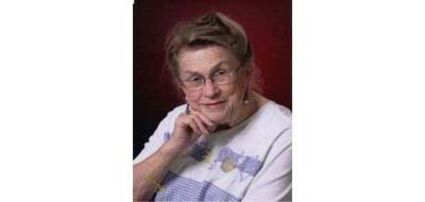History at a glance, part 2
The Spirit of Tehachapi
August 14, 2021
I left you in the early days of the 20th Century in "nineteen 'aught' nine." That's the way the old timers said those early years. They called zeroes "aughts" in those days. We missed our chance. We could have been saying twenty " aught" one all through nine! Oh, well.
1909 – The City of Los Angeles Cement Company was established four miles east of Tehachapi. An aqueduct was needed to provide Los Angeles and parts of the southland with water from the Owens Valley. They closed the plant down after the project was finished. For a time the cement plant and surroundings was called Aqueduct. The little town and plant was named Monolith in 1909.
1907-1909 – Fr. Joseph Wanner pastor of St. Malachy Church and Mission Churches in Owens Valley, San Fernando Valley and desert to Needles.
1910 – Apples, pears and cherry orchards planted by B.M. Dennison.
1912 – Local Opera House burns. Mr. Asher, owner of Asher's Store, has a new building constructed.
1912 – Mrs. Thomas R. Davis is first woman to cast vote in Tehachapi. Davis Street is named after her husband, a prominent citizen of that time.
1914 – Tehachapi population is 600.
1915 – F.M. Scott established the first Boy Scout Troop in Tehachapi: White Wolf Troop.
1915 – Tehachapi gets electric lights, Big Street Dance held. Note mural on Tehachapi Blvd.
1917 – June 1917 U.S. enters World War I against Germany. It was called, "The war to end all wars."
1918 – November 11, Armistice Day, end of World War I. One Tehachapi casualty.
1920 – American Legion Post 221 established. Thomas Downs, first Commander. Mojave was included in the Post until they later established their own post, the Golden Queen Post.
1921 – City of Los Angeles Cement Company sold to Coy Burnett and partner Fred A. Ballin, with Burnett as President. Burnett bought Ballin's share of the company two years later. It was named, Monolith Portland Cement Company and was the livelihood for the majority of Tehachapi men. Still survives as Lehigh Southwest Cement Company.

1928 – Community Congregational Church built on new site: Corner of Green and E Streets.
1929 – Late in 1929 a severe financial depression gripped the country. Banks failed, stocks and bonds lost value. Business was bad and people were thrown out of work: The Great Depression.
1930 – Fifty percent of Monolith workers laid off. Southern Pacific Railroad cuts employees.
1930 – Mojave Soup Kitchen reports 1,001 hungry transients and residents fed in one month.
1930 – New Tehachapi High School built with sixty students in attendance. Some students had been attending classes in the house at 405 South Curry since 1928 with two teachers. Prior to this, a student wishing a high school education had to board away from home in Bakersfield, Los Angeles or Lancaster. Construction cost: $50,000.
1931 – August 31, cloudburst floods home. Mrs. Jim Davis drowns as home swept away by waters east of town (Willow Springs Road). For many years all that remained were a few lonely fruit trees to show where the house had been.
1931 – A new seven room rectory built for St. Malachy Church. Cost: $1,003.50. Luke Boutin, builder. He was grandfather to the late Bob Burgeis.
1931 – October 3, Public Library built on Green Street. Present location of Tehachapi Museum.
1932 – September 30, Cloudburst waters from Tehachapi Creek floods Keene. Thirty lives lost. Santa Fe engine buried.
1932-1941 – Father John O'Shea becomes Pastor of St. Malachy Church and Mojave. No longer those far reaching missions.
1933 – September 1933, California Institution for Women opens with 28 inmates. The buildings were ready in June but legal difficulties had to be resolved before moving the prisoners from San Quentin.
1934 – Drs. Madge and Harold Schlotthauer establish hospital in Capdeville Hotel. Treated generations of local people.
1935 – Tejon Indian Rancheria made subject to Tehachapi Catholic parish. Just a few more miles!
1935 – New Grammar School built on E Street. Cost: $43,000. Later named Wells Elementary.
1936 – Green Street paved for first time. (Previously, dust, dirt and mud as seasons dictated.)
1936 – BeeKay Theatre closed for two weeks due to flu epidemic.
1936 – St. Malachy has new church. Cost: $6,800. Dedicated on June 13, 1937 by Bishop Philip Scher.
1937 – Population of United States: 128,000,000.
1937 – Potatoes are main crop in Tehachapi Valley.
1941 – Young men, age 21, to do one year military Defense Training in case of national emergency.
1941 – December 7, Pearl Harbor, Hawaii bombed by Japanese. War declared on Japan and Germany.
From 1909, through two World Wars is a poor place to stop, but I must. Hope you don't mind one more time line after this one.
P.S. These little bits of information don't enlarge on the real story. Come on by the Tehachapi Museum some weekend and pick up a copy of The Long Road To Tehachapi. It tells it in detail.




